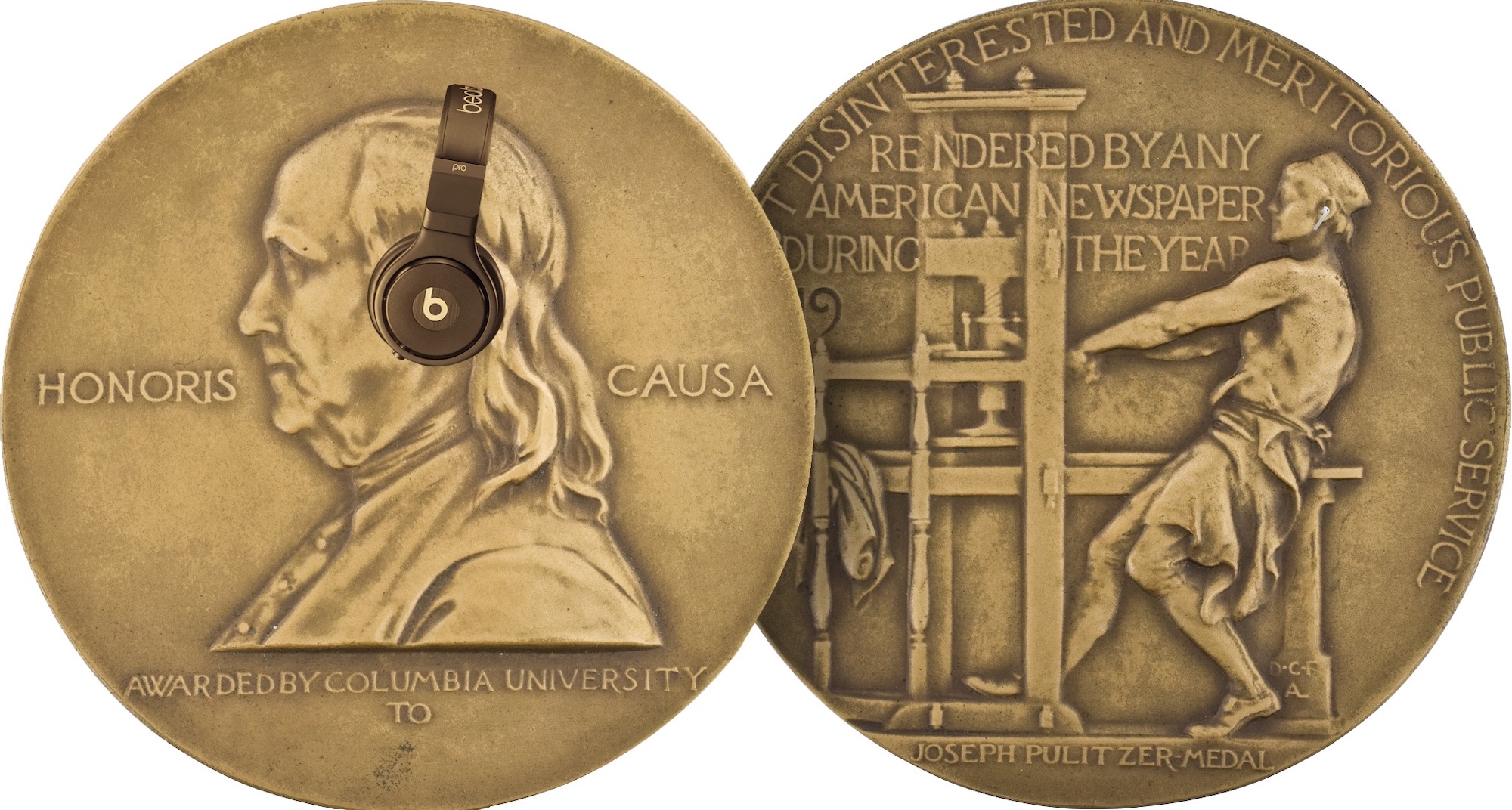
Podcasters rejoice: There will be a Pulitzer Prize for Audio Reporting in 2020, the Pulitzer board announced Thursday. The prize will be “for a distinguished example of audio journalism that serves the public interest, characterized by revelatory reporting and illuminating storytelling,” and “U.S. newspapers, magazines, wire services and online news sites that publish regularly,” as well as independent American producers and U.S. radio broadcast outlets, will be eligible to enter submissions.
The announcement is careful to note that this new category is “for the 2020 prize cycle,” and administrator Dana Canedy calls it “an experimental category.” In other words, audio folks should hope this cycle goes smoothly so it becomes a permanent part of the mix. It’ll be interesting to see how jurors and the board compare the different kinds of audio work they’ll be seeing: special limited-run series, individual episodes from long-running shows, radio segments, and so on.
(There’ve been plenty of changes to Pulitzer categories in the past. They killed off the Correspondence prize in 1947. The prize in Newspaper History was only given once, in 1918. To a couple grad students! And they don’t bother to call the National and International Reporting prizes “Telegraphic” any more. Journalism Pulitzer categories added since 1970: Commentary, Criticism, Feature Writing, and Explanatory Reporting.)
Audio Reporting will be the 15th journalism Pulitzer category; the last significant change was for the prize year 2007, when a “Local Reporting” category replaced “Beat Reporting.” That year, submissions also opened up to online journalism in most categories.
A variety of other changes in the years since have further broadened the work eligible for entry, leading to Pulitzer wins or finalist spots for online-first outlets (ProPublica, Center for Investigative Reporting, BuzzFeed News, InsideClimate News, The Marshall Project) and magazines (The Atlantic, The New Yorker, GQ, National Geographic). Now, shows like This American Life, Caliphate, In the Dark, 1619, Bundyville, Slow Burn, or Trump Inc. might have the chance to join them.
Some radio people weren’t too excited about the new category being associated with the podcast boom, given that audio journalism was not invented by Serial in 2014.
So…yay, an audio Pulitzer.
But this, from Pulitzer administrator Dana Canedy…
"The renaissance of audio journalism in recent years…"
Puh.
Leeze.
We've been here the whole damn time. https://t.co/BDYQVumbLq
— Kai Ryssdal (@kairyssdal) December 5, 2019
Nonetheless, here we are. Pulitzer submissions, by the way, open December 16 and close on January 24. The winners will be announced in April. Also: “Audio entries must be submitted without preroll advertising.”
A bummer this came too late things like Caliphate for @InTheDarkAPM’s amazing last season but glad that kind of work will be eligible in the future. https://t.co/F4nf0GtPre
— Lydia Polgreen (@lpolgreen) December 5, 2019
A better way to modernize the Pulitzers would be to make the categories platform agnostic. Give a prize to an Instagram Story if it's good enough https://t.co/IyDXFaaila
— David Uberti (@DavidUberti) December 5, 2019
Pulitzer entries will for the first time be accepted “via weblink.” Kinda says it all. https://t.co/070HKsBpCA
— Zach Seward (@zseward) December 6, 2019